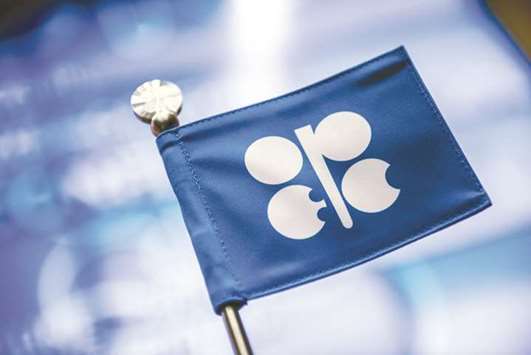It’s all eyes on OPEC as U.S. oil prices fell for 10 consecutive days, wiping out any gains for the year.
Futures in New York slid 0.8 percent to settle at $60.19 a barrel on Friday, a day after falling into a bear market on concerns growing supplies will overwhelm the market, as the U.S. offered nations waivers to continue buying Iranian oil. The plunge will push OPEC and its allies into a corner as they gather in a highly-anticipated meeting this weekend that could yield a signal on future production cuts.
“The Iranian sanctions were supposed to be a game-changer in the market,” said Michael Loewen, a commodities strategist at Scotiabank in Toronto. Producers have been “attempting to pump as much oil as possible right now to soften the blow of those Iranian sanctions, yet Trump comes out and gives waivers.”

Crude’s slump from its early-October peak above $76 a barrel comes as U.S. production is at a record, OPEC output is at the highest since 2016, more Iranian crude might make it to market then previously thought and demand growth remains a concern.
Click here for the latest on speculators’ oil positioning
WTI futures fell 4.7 percent this week. Total volume traded was about 44 percent above the 100-day average on Friday, while a measure of oil market volatility jumped to the highest level since late 2016.
Brent futures for January settlement fell 47 cents to end the session at $70.18 a barrel on the London-based ICE Futures Europe exchange, the lowest since April 9. The global benchmark crude traded at a $9.82 premium to January WTI.
A potential agreement by OPEC to return to output cuts would mark the second production U-turn for the group this year. For Saudi Arabia — the world’s biggest crude exporter — it would be the third time in recent years that the kingdom has delivered a supply surge only to quickly backtrack on it.



